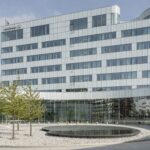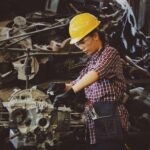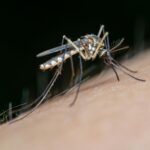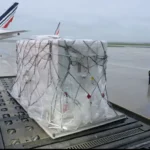MARIAM ALMHEIRI: CREATING GREEN AND SUSTAINABLE COMMUNITIES

The Ministry of Climate Change and Environment heldthe fourth in a series of eight nationwide COP28 Changemakers Majlis sessions under the theme “Green and Sustainable Communities” at House of Wisdom in Sharjah.
The initiative held before the launch of the COP28 later this month in the UAE. The sessions bring together several climate leaders and experts from the government, the private sector, and other sectors.
The topic of the Majlis in Sharjah centred on innovations and challenges linked to designing, building, and championing greener, more sustainable communities in the UAE.
The Majlis was chaired by Her Excellency Mariam bint Mohammed Almheiri, UAE Minister of Climate Change and Environment, and moderated by Eng. Aisha Al Abdooli, Director of the Green Development Department at the Ministry of Climate Change and Environment.
The Majlis was attended by H.E. Ahmed Obaid Al Qaseer, Chief Executive Officer at The Sharjah Investment and Development Authority (Shurooq), and H.E. Mohammed Juma’a Al Musharrakh, the Chief Executive Officer of the Sharjah FDI Office (Invest in Sharjah). The attendees also comprised representatives from the private sector, the research and academic sectors, entrepreneurs, and youth.
The event brought together climate leaders, experts, and government representatives, and focused on the importance of building greener, more resilient communities. Attendees discussed how local governments and the private sector can collaborate to support communities across the United Arab Emirates, and how technology could be used to make change.
The Majlis was attended by senior officials of MOCCAE, including H.E. Mohammed Saeed Al Nuaimi, Acting Undersecretary of the Ministry, H.E. Eng. Mohammed Alameeri, Assistant Undersecretary of the Food Diversity Sector, H.E Eng. Othaibah Al Qaydi, Acting Assistant Undersecretary for the Sustainable Communities Sector, and H.E. Shaikha Ahmed Salem Al Ali, Acting Assistant Undersecretary for the Regions Sector.
The Majlis focused on building green and sustainable communities that are more resilient and adaptable to climate change. The attendees discussed how local governments and the private sector work together to support UAE communities. They also discussed how to leverage technology to achieve the desired change.
H.E. Mariam Almheiri said the COP28 Changemakers Majlis reflects the UAE’s track record in bringing together all segments of the community to discuss the most crucial issues that affect our future. She added that climate change and promoting sustainable communities concerns all members of the society and determines the future of the coming generations.
H.E. added, “Protecting nature is core to our green transformation because by preserving nature, we can create sustainable communities and growth. We are following the vision of the late Sheikh Zayed bin Sultan Al Nahyan to promote the concept of sustainability and preserve the environment and natural resources. Today, the UAE has many clean and renewable energy plants and follows sustainable economic and social practices.”
HE said that UAE is the first to sign the Paris Climate Agreement and has recently submitted its Third Update to its Second Nationally Determined Contributions. The UAE has committed to cutting emissions by 40% compared with “business as usual” scenario, and realising the Net Zero by 2050 targets.
HE added that the UAE is strengthening its position in global climate action by hosting COP28, with the aim of making it the most comprehensive conference that focuses on various aspects of sustainable practices besides energy, such as sustainable agricultural and food systems, waste management, construction, transportation, industry, and many more which are also focused on achieving the UAE’s Net Zero by 2050 Strategy.
HE further added, “The UAE will continue to focus on achieving Net Zero with greater confidence and determination, in cooperation with all federal and local authorities, the private sector, and all other stakeholders. The key goal is to build sustainable communities and create an aware community and individuals. Our community must make informed decisions to achieve sustainability, starting with food, clothing, transportation, shopping, waste disposal, etc., which will play a pivotal role in building sustainable communities for the next generations.”
H.E. stressed that the Ministry works with all concerned entities to develop environmental legislation and laws that help to adopt sustainable behaviours and support the private sector provide products and services that keep pace with these behaviours. She said that the Ministry is communicating with all partners through interactive channels such as the Majlis and other initiatives such as the “National Dialogue for Climate Ambition.”
Ahmed Obaid Al Qaseer said, “Sharjah adopts sustainable targets as part of its development plans. “Sharjah Sustainable City” has a unique pathway in building homes using sustainable materials, adopting a sustainable lifestyle, and providing homes with renewable energy sources. It recycles all the waste, as well as encourages residents to adopt sustainable behaviours.”
Al Qaseer stressed the importance of raising community awareness by holding workshops such as those organized by “Shurooq” to help realize the vital role of sustainability, and teaching people how they can implement sustainable behaviours in their lives. He highlighted on the need to find solutions to finance sustainable projects, and find companies specialized in implementing such projects efficiently and at a competitive cost.
Mohammed Juma’a Al Musharrakh stressed the need to develop more laws and legislation to support investments and sustainable businesses and keep pace with the changes around the world. He urged to follow practices such as the law banning the use of single-use plastic bags by next year.
During the Majlis, the main challenges and solutions in promoting sustainable societies in the UAE were discussed including the need to build a knowledge-based society starting from the curriculum in schools and universities, teaching students the foundations of the green economy and circular economy, and other behaviours to rationalize consumption and reduce the carbon footprint of individuals such as reducing the use of electronic devices and promoting electric vehicles, eating healthy food and others.
The Majlis addressed the need to promote effective communication between the Government, decision-makers, the private sector and the research and academic community, and to create an interactive networking network among all to bring about effective integration among all sectors, exchange services and facilitate access to potential partners to deliver sustainable projects.
The Majlis discussed the need to utilise local companies in finding greater solutions to enhance competitiveness between businesses especially in recycling, which will be reflected in the cost and quality of service delivery..
The Majlis addressed the need for promoting sustainable projects and educating the society. Most importantly, it is necessary to design appropriate messages for all groups of the community living and working in the UAE in accordance with their language, background and culture, using all channels of communication – from traditional media and social communication channels – and conducting discussions, workshops and others.
The UAE government has been working in partnership with private business to drive greener and more sustainable communities through initiatives including: developing green hydrogen projects; capturing and permanently storing carbon; increasing local sourcing of produce; using smart technologies to monitor and manage energy use; implementing measures to extend the useful life of buildings; growing food using advanced vertical farming technology; upcycling construction and demolition waste into construction materials; converting waste oil into biodiesel; developing a recycling plant for (PET) plastic materials used in food packaging; developing a virtual global marketplace for recycled plastic; establishment of innovation centre to establish circular carbon economies; and restoring coral, mangrove and seagrass to strengthen marine ecosystems.
This has seen the creation of the “Rebound Plastic Exchange”, the first global trading platform for recycled materials, as well as agreements such as between Majid Al Futtaim’s Carrefour and the Sharjah Department of Agriculture and Livestock (SDAL) to establish a partnership supporting local agricultural and animal products. Sourcing food that is grown regeneratively and locally, where appropriate, will play an important role in reducing carbon emissions and biodiversity loss and in transitioning to a Circular Economy for Food.
On the sideline of the Majlis, H.E. Mariam Almheiri, accompanied by Marwa Al Aqroubi, Executive Director of the House of Wisdom Library in Sharjah, toured the facility, its departments and library, which has about 100,000 books, as well as rooms for discussion, and places for reading. She also briefed Her Excellency on the sustainability projects and activities carried out by the House of Wisdom and about the history of sustainability among Arabs.
H.E. expressed her great admiration for the House of Wisdom, which reflects the heritage and history of the UAE and its interest in culture to advance the path of civilization and prosperity.
About the COP28 UAE Changemaker Majlis series
The COP28 UAE Changemakers Majlis series, which is supported by the Salama bint Hamdan Al Nahyan Foundation, is a high-level, aspirational, action-oriented conversation focusing on realising the UAE’s bold ambitions of advancing innovative climate solutions.
As part of COP28 Presidency team’s efforts to ensure inclusivity at the crucial talks, which begin in just 16 days, each Emirate has hosted, or will shortly host a Majlis.
Hosting a curated group of influential local leaders, the events represent the chance to discuss specific climate change challenges and co-design clear, actionable solutions.
The objective of the UAE Changemakers Majlis stream is to bring together local climate leaders and innovators, in a way that creates new pathways for them to discuss climate, sustainability, and Net Zero opportunities, challenges, and partnerships, while highlighting the role they each play in advancing domestic climate goals leading up to, during, and after COP28.
Last Updated on 1 year by News Desk 1












